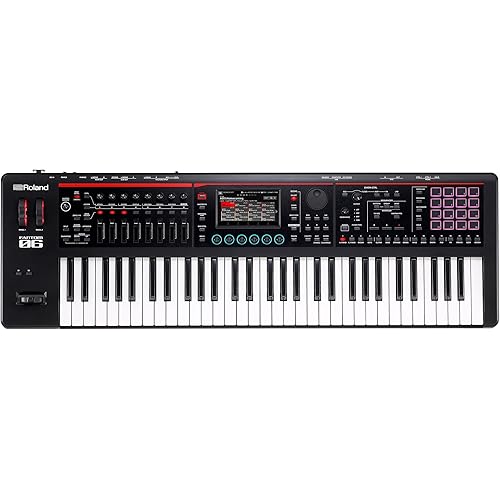



Buy Now, Pay Later
- – 6-month term
- – No impact on credit
- – Instant approval decision
- – Secure and straightforward checkout
Ready to go? Add this product to your cart and select a plan during checkout.
Payment plans are offered through our trusted finance partners Klarna, Affirm, Afterpay, Apple Pay, and PayTomorrow. No-credit-needed leasing options through Acima may also be available at checkout.
Learn more about financing & leasing here.
Selected Option
Eligible for Return, Refund or Replacement within 30 days of receipt
To qualify for a full refund, items must be returned in their original, unused condition. If an item is returned in a used, damaged, or materially different state, you may be granted a partial refund.
To initiate a return, please visit our Returns Center.
View our full returns policy here.
Style: Korg Volca Keys
Features
- Three note true analogue synthesis with one knob per function for easy hands-on tweaking
- 16-step sequencer with Flux mode for non-quantized free flowing loops
- Sync In and Out allows clock sync of multiple instruments from the volca Series
- MIDI In for note entry, plus external sync and control from your DAW
- Play anywhere with the built-in speaker and optional battery power
Description
Volca keys is an analog lead synthesizer that provides carefully selected parameters that allow the user to create a diverse array of fat sounds that can be obt. Polyphonic Analog Synthesizer. True analog synthesis with 3-note polyphony.
Color: Assorted Colors
Brand: Korg
Item Dimensions LxWxH: 8 x 5 x 2 inches
Item Weight: 1 Pounds
Included Components: not included
Item Weight: 1 pounds
Product Dimensions: 8 x 5 x 2 inches
Item model number: VOLCAKEYS
Batteries: 6 AA batteries required. (included)
Is Discontinued By Manufacturer: No
Date First Available: April 17, 2013
Color Name: Assorted Colors
Number of Keyboard Keys: 27
Size: small
Battery type: Alkaline
Power Source: Battery Powered
Frequently asked questions
To initiate a return, please visit our Returns Center.
View our full returns policy here.
- Klarna Financing
- Affirm Pay in 4
- Affirm Financing
- Afterpay Financing
- PayTomorrow Financing
- Financing through Apple Pay
Learn more about financing & leasing here.
Top Amazon Reviews























